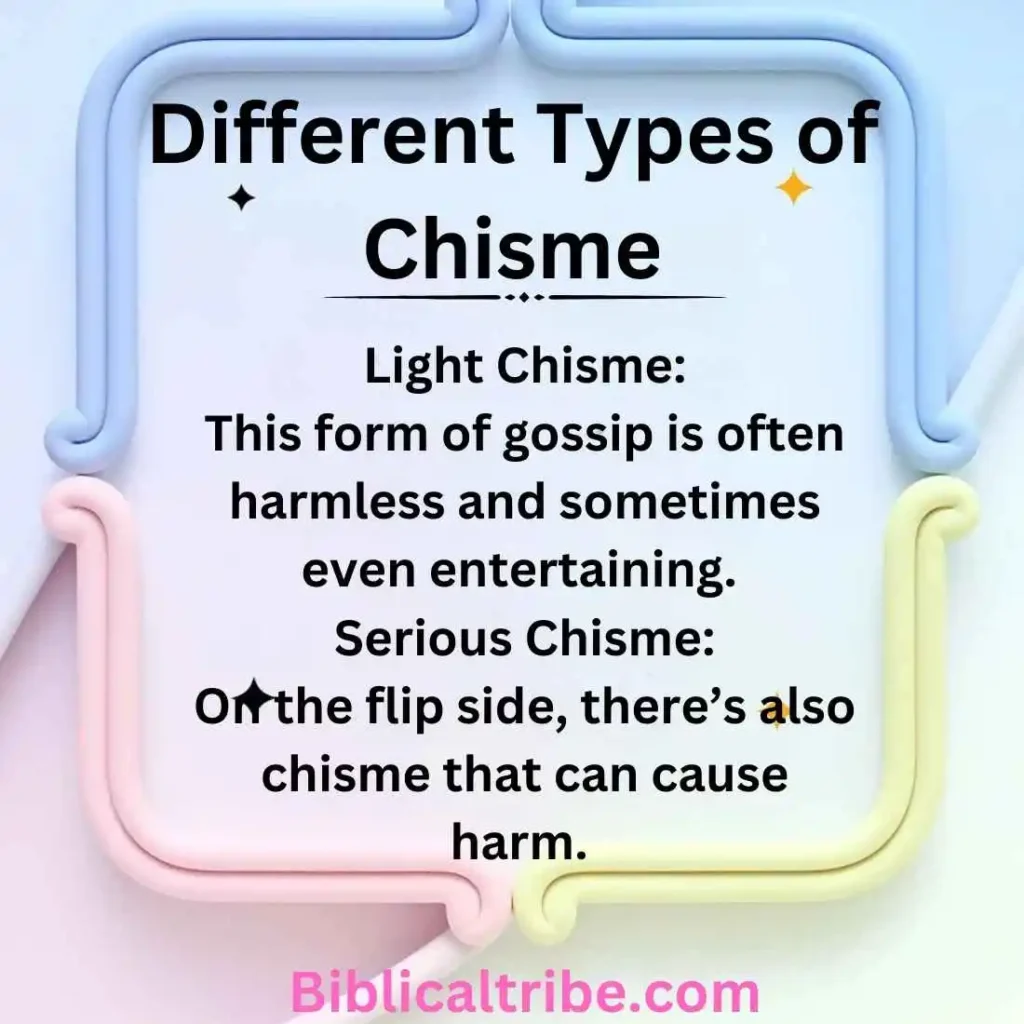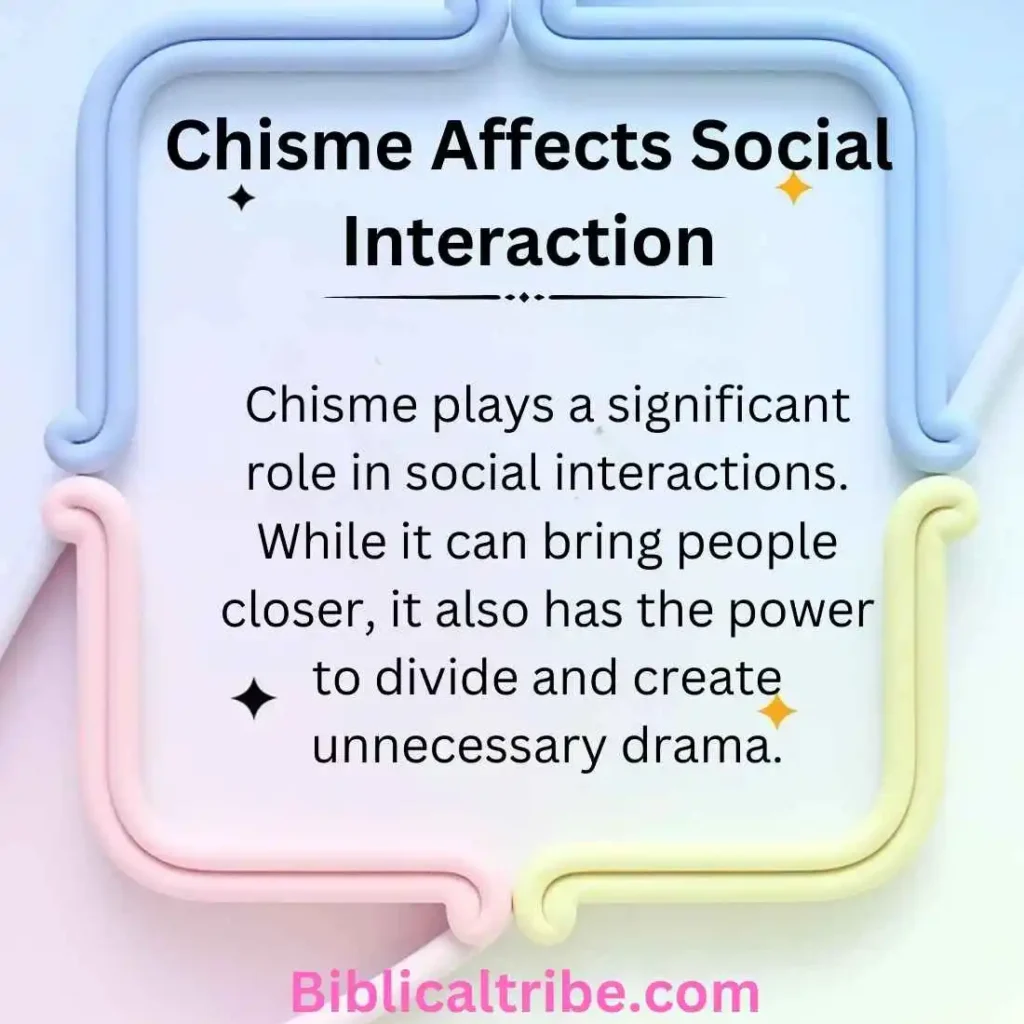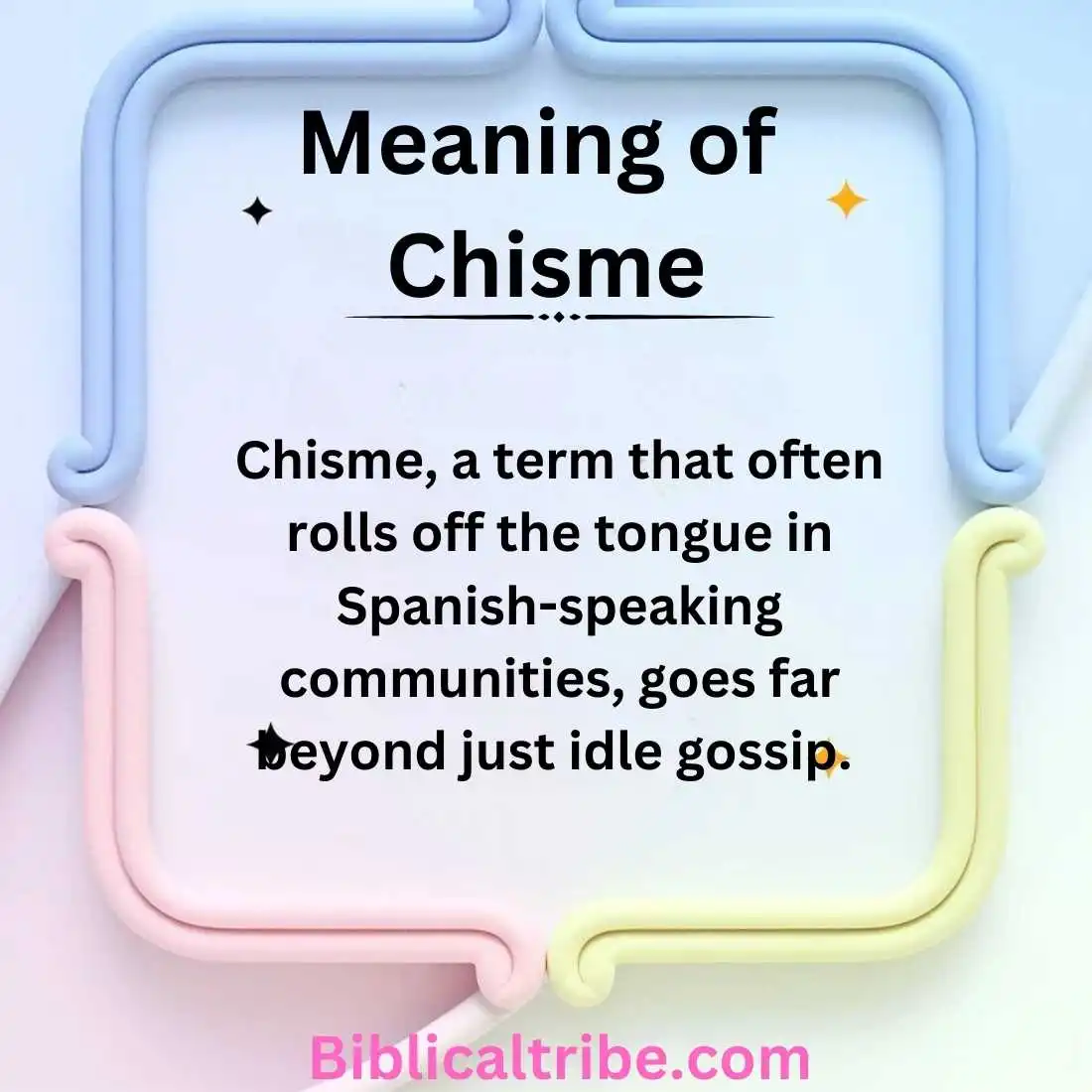Last Updated on February 9, 2025 by Ethan Richards
Chisme, a term that often rolls off the tongue in Spanish-speaking communities, goes far beyond just idle gossip.
While many use it casually in conversation, chisme carries a deeper cultural significance that impacts relationships, social dynamics, and even the way people view each other.
But what exactly does chisme mean, and why has it become such a prominent part of human interaction?
This article takes a comprehensive dive into the meaning of chisme, its origins, how it shapes culture, and the positive and negative effects it can have.
Whether you’re familiar with the term or hearing about it for the first time, by the end of this post, you’ll have a clearer understanding of why chisme holds such a powerful place in society.
What Is Chisme?
At its core, chisme refers to gossip, rumors, or stories about someone or something that often circulate informally.
However, the word carries a bit more weight in Latin American cultures, where it has both positive and negative connotations.
The term itself is informal and typically associated with people sharing unverified or sensationalized information.
But in some communities, it can also be a form of social bonding, helping to strengthen relationships and build community ties.
Etymology:
The word chisme is derived from the Spanish verb chismear, meaning “to gossip” or “to spread rumors.”
Over time, the word expanded in use, encompassing a broader range of conversations that might not always be grounded in truth but certainly capture the attention of those involved.
Cultural Significance of Chisme
In Latin American and Spanish-speaking communities, chisme isn’t just something that happens behind closed doors.
It often plays an important role in socializing, connecting, and even communicating within families and neighborhoods.
- Social Glue: In many cases, chisme helps people bond over shared stories and experiences. It can create a sense of community, as people come together to talk about mutual acquaintances or societal events.
- Cultural Tradition: Particularly in family settings, chisme can be seen as a way to pass down stories, opinions, and even warnings. It plays a role in shaping how people view others and influences the flow of information in day-to-day life.
However, it’s not all positive. While chisme can bring people closer, it can also create tensions, spread mistrust, and damage reputations, especially when it’s used maliciously or to spread falsehoods.
Different Types of Chisme

Not all chisme is created equal. It can range from harmless banter to destructive rumors that can affect lives. Here are some common types of chisme:
- Light Chisme:
This form of gossip is often harmless and sometimes even entertaining. It’s the kind of conversation that involves trivial things, like how someone’s hair looks or who went to a party over the weekend. Most of the time, light chisme serves as an icebreaker and does not harm anyone involved. - Serious Chisme:
On the flip side, there’s also chisme that can cause harm. This involves spreading rumors about someone’s personal life, often without factual basis. It can lead to damaged relationships, misunderstandings, and unnecessary drama. - Chisme de Barrio:
This term refers to neighborhood gossip—often shared among small communities where everyone knows each other. It can be a way to stay informed about what’s happening locally, but it can also spread false rumors quickly, especially in tight-knit neighborhoods. - Social Media Chisme:
In today’s digital age, chisme has evolved to fit the online space. From Facebook and Twitter to TikTok and Instagram, gossip spreads faster than ever.
The anonymity of the internet allows people to spread rumors without facing immediate consequences, which can escalate the impact of the gossip.
The Negative and Positive Sides of Chisme
Chisme is rarely black and white. Like many things in life, it has both positive and negative aspects that influence how it’s perceived and its consequences.
Negative Aspects
While chisme can be fun and bonding, it often has negative effects:
- Damage to Reputation: The most significant downside of chisme is its potential to ruin someone’s reputation. Once gossip starts circulating, it’s difficult to stop. Even if the rumors are proven false, the damage has already been done.
- Trust Erosion: When people gossip, they often create an environment of mistrust. Relationships—whether familial, romantic, or professional—can suffer when trust is undermined by chisme.
- Conflict: Gossip can often lead to arguments, hurt feelings, and even broken relationships. People may fight over what was said or how it was said, further escalating the issue.
Positive Aspects
Despite the harmful side of chisme, it can also have some surprising benefits:
- Information Sharing: In some cases, chisme helps spread important information within a community. For instance, hearing about a neighbor’s illness or a job opening can help people stay informed and take necessary action.
- Social Bonding: In many communities, chisme serves as a way to socialize, laugh, and engage with others. It’s a way to feel connected and stay involved in the lives of those around you.
- Cultural Exchange: In certain cultures, chisme can be a way to exchange opinions, provide advice, and support one another through shared stories or experiences.
How Chisme Affects Social Interaction

Chisme plays a significant role in social interactions. While it can bring people closer, it also has the power to divide and create unnecessary drama.
- Strengthening Bonds: In many cultures, chisme is a tool for social connection. People often gossip about shared experiences or common acquaintances, which helps build camaraderie and foster closeness among individuals.
- Breaking Down Trust: In contrast, when chisme is harmful or based on lies, it can quickly break down trust. If you hear a negative rumor about someone, you may start to question their character without even knowing the facts. This often leads to damaged relationships.
- Cultural vs. Personal Views: Not everyone views chisme in the same light. For some, it’s just a harmless way to pass the time, while for others, it’s an intolerable breach of privacy. Understanding these perspectives can help you navigate social settings where chisme is common.
Chisme in Popular Media and Entertainment
Chisme has found its way into popular culture, making appearances in movies, TV shows, and even in the tabloid press. But how is it portrayed?
- TV Shows and Movies: Gossip is often a central plot point in many reality TV shows, soap operas, and even sitcoms. Shows like Desperate Housewives or Gossip Girl have built entire storylines around the drama of spreading rumors and secrets.
- Celebrity Gossip: The world of celebrities is often filled with chisme, as the public is eager to learn about the private lives of famous individuals. From relationship rumors to career updates, celebrity gossip fuels media outlets and tabloids.
- Entertainment Industry: In the entertainment world, chisme can be a tool for promoting news or generating buzz around new releases. While it’s sometimes manufactured, it often involves some element of truth that gets twisted for maximum effect.
The Role of Chisme in Professional Settings
Chisme doesn’t just exist in personal or social circles—it also infiltrates the workplace. In professional settings, gossip can be a double-edged sword.
- Office Gossip: In many office environments, chisme is a regular occurrence. Whether it’s about a colleague’s promotion or personal life, gossip often circulates in break rooms or through private conversations. This can create a toxic work environment if left unchecked.
- Navigating Chisme Professionally: It’s important to handle workplace gossip carefully. Spreading rumors can result in damaged careers, strained relationships with coworkers, and even legal consequences in extreme cases.
- Legal Considerations: In some instances, spreading false or malicious gossip—especially in the workplace—can lead to legal action. Slander and defamation laws protect individuals from harmful falsehoods.
How to Respond to Chisme
Handling chisme can be tricky, but it’s possible to navigate it effectively.
- Ignoring It: Sometimes, the best response to gossip is simply to ignore it. If it’s harmless, let it fade away naturally.
- Addressing It Directly: If the gossip is about you or involves someone you care about, it might be worth addressing the issue head-on. Calmly clarify the situation to prevent misunderstandings.
- Spreading Positivity: Instead of engaging in gossip, try to steer conversations toward more positive or meaningful discussions. This can help shift the tone of conversations and reduce the impact of chisme.
The Future of Chisme
As with many things in the digital age, chisme has evolved to fit modern technology. Here’s what we can expect:
- Digital Age Chisme: With social media platforms like Facebook, Twitter, and Instagram, gossip now spreads faster than ever. News—both true and false—can reach millions in a matter of hours.
- Changing Attitudes: Younger generations may view chisme differently, often seeing it as less harmful or as a form of social interaction. However, the digital age has also raised awareness about the damage caused by online rumors.
- Will Chisme Ever Die?: It’s unlikely that chisme will ever fade away entirely. Human nature is naturally inclined toward sharing stories, and gossip has always been a part of social life. The only change might be how it’s communicated and the impact it has on individuals.
Conclusion
In conclusion, chisme is more than just casual gossip—it’s a cultural phenomenon with both positive and negative aspects. It can serve as a tool for social bonding or a means of passing on information.
But it can also create misunderstandings, spread falsehoods, and cause harm. Whether we encounter it in family conversations, at work, or on social media, chisme is an inevitable part of human interaction.
By understanding its dynamics, we can navigate it more thoughtfully and avoid falling victim to its potential harms.

Ethan Richards is an accomplished author and dream interpreter known for his insightful and thought-provoking analyses. With a keen eye for detail and a passion for biblical studies, Ethan helps readers unlock the secrets of their dreams, offering clarity and spiritual enlightenment.








